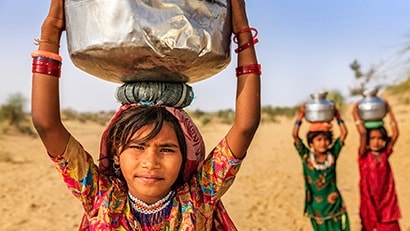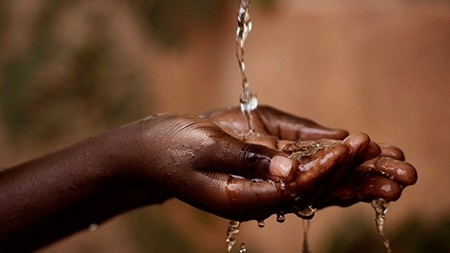Key points
- Cholera is a bacterial disease spread through contaminated water and food.
- Cholera can cause severe diarrhea, dehydration, and even death if the disease goes untreated.
- People living in places with unsafe drinking water, poor sanitation, and inadequate hygiene are at highest risk of cholera.

What it is
Cholera is an infection of the intestines caused by the bacterium Vibrio cholerae. You can get cholera from drinking water or eating food containing cholera bacteria.
Most people who get cholera don't get sick. However, cholera can cause life-threatening watery diarrhea and vomiting. Every year, an estimated 1.3 to 4 million people around the world get cholera, and between 21,000 to 143,000 people die.
With early and proper treatment, even severely ill patients can survive cholera.
Signs and symptoms
Most people who get cholera have mild symptoms or no symptoms at all. About 1 in 10 people develop severe symptoms such as watery diarrhea, vomiting, and leg cramps. Losing body fluids quickly can lead to dehydration and shock.
Who is at risk
People living in areas with unsafe drinking water, poor sanitation, and inadequate hygiene are at highest risk of getting cholera.
U.S. residents can get cholera while traveling abroad and sometimes become ill after returning home. Some travelers have gotten sick after bringing contaminated seafood home with them from abroad.
How it spreads
People usually get cholera from drinking water or eating food that contains traces of poop from someone with cholera. The disease can spread quickly in areas where sewage and drinking water aren't adequately treated.
Cholera bacteria also can live in brackish (slightly salty) and coastal waters. Eating raw shellfish can cause cholera.
Cholera is not likely to spread from person to person or from casual contact with someone with cholera.
Prevention

If you plan to travel, check if cholera is common or ongoing in the area you are visiting. If cholera is present, washing your hands with soap and safe water, drinking treated water, and getting vaccinated against cholera are among the steps that can help prevent you from getting sick.
Treatment and recovery
If you think you or a family member might have cholera, get medical attention immediately. Dehydration can occur quickly and replacing lost fluids is essential. For babies with watery diarrhea, continue feeding them breast milk or formula to help them stay hydrated.
Treatment for cholera can include:
- Rehydration therapy
- Antibiotics
- Zinc supplementation for children
